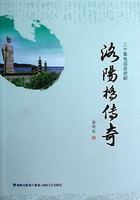Those states most quickly became powerful and rich, which carried out this centralising tendency with the greatest energy. Germany remained so far behind the greater Italian states, behind Burgundy, Holland, England, and France, behind even the smaller nortHern states, because it remained fast bound by mediaval forms; because, moreover, even its greater territories were too small, too fragmentary, too far from the coast, to pursue this new kind of centralising policy like the western states of Europe. The Great Elector made a beginning; he tried to create a German-Baltic coast state and a naval power, and thereby to seize the Dominium Maris Baltici, and the commercial control of the east of Europe. The attempt was bound to fail, because Holland, Sweden, Denmark, Poland, Austria, and Russia had interests opposed to it, and because the position and extent of the Brandenburg state, as it then existed, were inadequate for the task. Abandoning, as it must, the main feature of its plan, the attempt to secure maritime power, only one way remained open by which the young military and Protestant state could arrive at its economic ends. And this was to endeavour, upon the agrarian and feudal foundation furnished by the provinces grouped around Brandenburg, to create an industry which should rival the civilised states of the west, using for that purpose all the devices of state-aided immigration, of encouragement of industry, and of protective tariffs. Such an industry would have alike the power and the duty to control the domestic market, to raise the decaying handicrafts of the little rural towns, to free the country bit by bit from dependence on west-European trade and credit, and to strengthen its influence on Poland and the other eastern states.
On this path, then, Frederick William I and his ministers entered with conscious purpose and energy; and out of this school came Frederick II, who pursued the same object with greater boldness and genius. To the question how it was that Frederick regarded the silk industry as occupying so very important, if not the most important, place in such a policy, Dr Hintze gives a simple and conclusive answer.
Starting with the generally recognised fact that, before our modern age of iron and coal, the centre and summit of industrial development were to be found in the finer textile manufactures, Dr Hintze shews us how economic supremacy passed from Byzantium to Italy, from Venice, Genoa, Florence, and Lucca to the greater Italian states, Milan and Piedmont, from italy to Spain and France, and thence to Holland and England; and how this transference was always accompanied, partly as effect, partly as cause, by tHe rise of the silk industry by the side of the woollen industry. In no case was the production of raw silk itself the cause of the silk industry, as is sometimes supposed;the actual production of silk took place elsewhere; and even in Italy and France it was a consequence of the silk industry, and came comparatively late. France and England had created their silk industries with all the political resources at their disposal and with the greatest sacrifices. In Lyons in 1667 there were counted 2000 looms, in 1752, 9404. In the great economic struggle of England against France, the prohibition in 1688 of the importation of French silk wares into England was, perhaps, after the Navigation Laws and the victories at sea, the most telling blow. Up to that time silk goods to the value of ?00,000had every year gone from France to England; in 1763 the English silk industry gave employment to 50,000 persons. But not only the great states, the smaller ones also, desired at any price to have a silk manufacture of their own. The Italian traders who first brought the silk wares were followed by Italian weavers and dyers. Zurich and Basel, Ulm, Augsburg, and Nuremberg, had a good many silk-workmen as early as the sixteenth century. In Antwerp in the seventeenth century 2000 looms were at work. In the Netherlands, Amsterdam, Haarlem, and Utrecht became rich through this industry; and from thence it passed to Hamburg. Belgian and French refugees joined the Italian workmen in bringing it to Denmark, Sweden, and Russia. About 1700 Leipzig had already a considerable velvet and silk business; in 1750 a thousand looms were at work. In the Palatinate, in Munich, and in Vienna, J.
Joachim Becher had made various attempts to call a silk industry into existence by means of companies; all through the eighteenth century like attempts were made in every German capital. But they succeeded, on any considerable scale, only in Prussia, and there especially in Berlin. It can certainly be maintained that, though Hamburg and Leipzig, Krefeld and Utrecht had greater facilities in reaching a market, in all other respects Berlin was as well fitted as many other places to support a flourishing silk industry; and also that, according to the ideas of the eighteenth century, it was bound to make the attempt as soon as the provinces of Brandenburg and Prussia were conceived of as forming an independent economic body ready for rivalry with Holland and England and France.
[Then follows an account of the measures of the government, and of the organisation and progress of the manufacture.]















